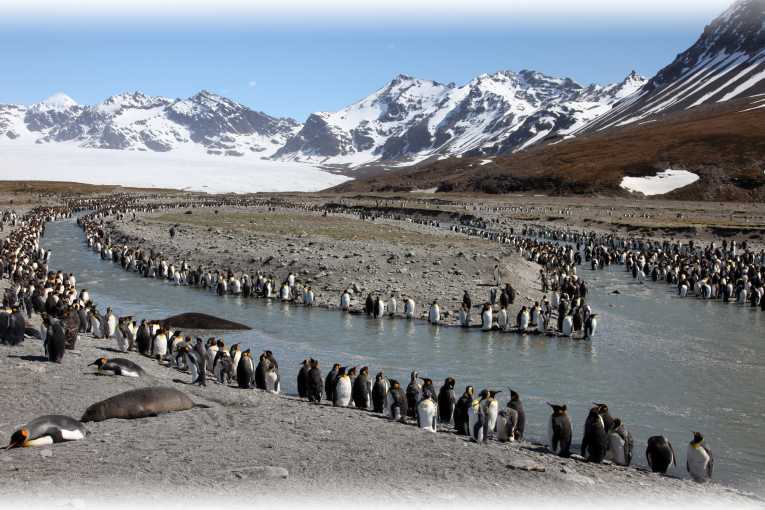The South Georgian island chain may be a collection of snow-and-ice-clad pinnacles, thrusting from chilly seas just 900 miles from Antarctic peninsula - but its icy surrounds are home to a greater level of marine biodiversity than some tropical islands. That's the conclusion that a wide-ranging study of the isles - published in this week's online journal, PloS ONE - came to, after studying over a century's worth of polar records.
The island chain, which includes the 100 mile-long island of South Georgia itself - and more than a dozen volcanic islands of the South Sandwich - lies close to the cool Antarctic Current. That has kept the waters here cold, but sea temperatures are rising fast, thanks to global warming. The study has picked up on a warming trend that make South Georgia one of the fastest warming places on the globe. It was partly for that reason - to assess the impact of warming on biodiversity - that the study by the British Antarctic Survey (BAS) was undertaken.
As well as poring over records and surveys from polar explorations - which go back to Victorian times - the team collected specimens from the seas around the islands. In total, 1,500 marine species have been collected from nearby to the islands, which make them one of the prime hot-spots for oceanic biodiversity.
The lead author of the study, Oliver Hogg, from the BAS, said, ''The biodiversity of South Georgia exceeds that of its nearest rivals such as the Galapagos and Ecuador in terms of the number of species inhabiting its shores. During the breeding season it hosts the densest mass of marine mammals on Earth.''
Species seen included a wide variety of crustaceans, sea-spiders, free-swimming worms and sea-urchins, as well as the ubiquitous seals, whales and penguins. But all this ecological richness is also under threat. The weather records that the team collated showed that sea surface waters have warmed by an average of 0.9°C in the summer - and 2.3°C at the height of the southern winter, in August - since 1925.
That puts South Georgian on a faster warming trajectory than the nearby Antarctic Peninsula, which has seen a 1°C rise over the last half-century. Hogg believes that this reinforces the importance of this work, saying ''This is the first time anybody has mapped out the biodiversity of a small polar archipelago in the Southern Ocean. If we are to understand how these animals will respond to future change, a starting point like this is really important.''
Top Image: Credit © Bernard Breton.










